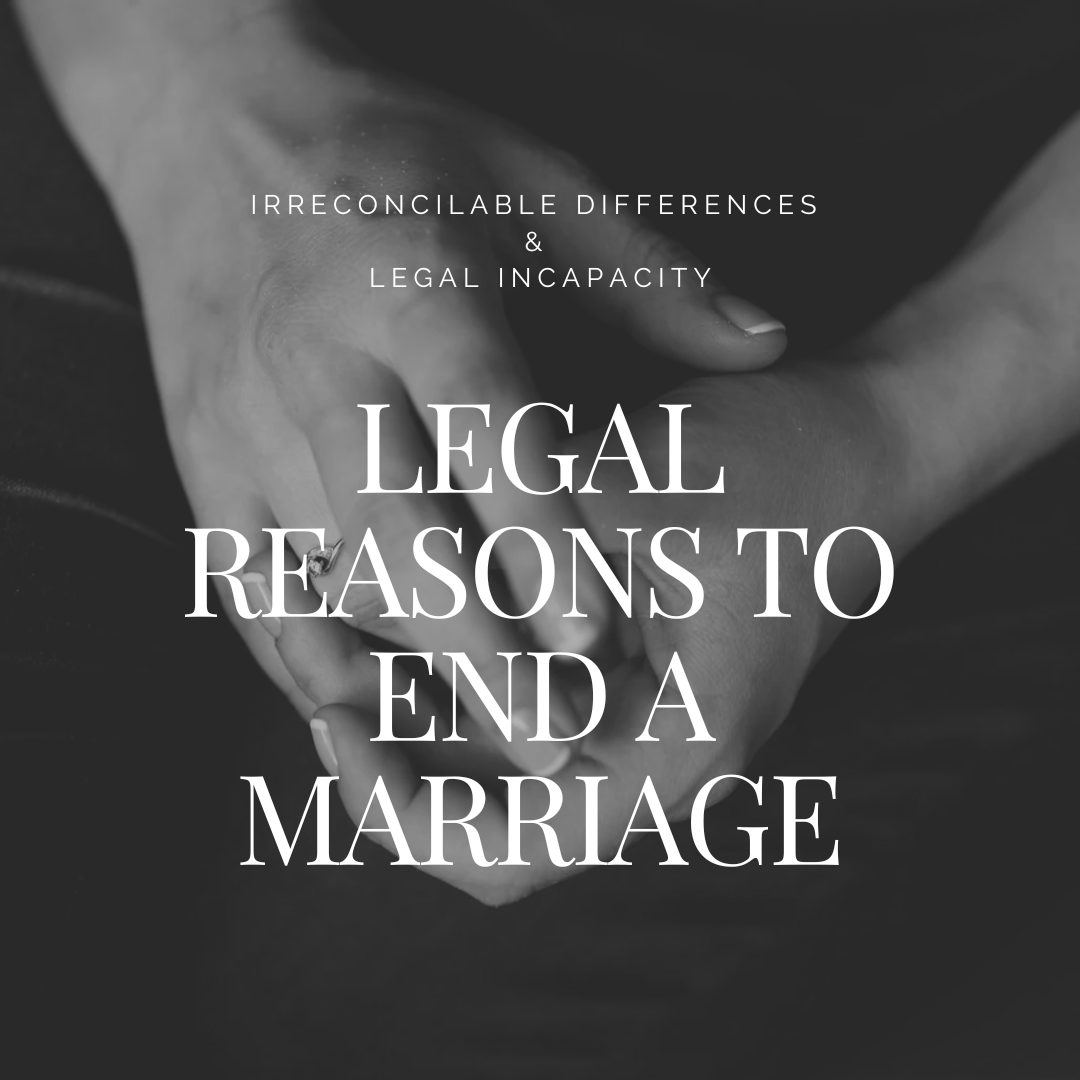Two Legal Reasons for Divorce in California
In California, a divorce or legal separation can be granted only on two specific grounds: irreconcilable differences or permanent legal incapacity to make decisions. These are explained in Family Code Section 2310. Let's break down each ground to understand what is required and how the court evaluates them.
Irreconcilable Differences

Most divorces in California are filed based on irreconcilable differences. According to Family Code Section 2310, irreconcilable differences are defined as issues that have caused the irremediable breakdown of the marriage.
Family Code Section 2311 further explains that irreconcilable differences are those "determined by the court to be substantial reasons for not continuing the marriage and that make it appear that the marriage should be dissolved."
California divorce law requires proof that substantial marital problems exist, which have damaged the relationship so much that the core purpose of the marriage has been destroyed. These problems must be beyond correction or resolution.
So, if marriage has reached a point where reconciliation is no longer reasonable, the grounds for irreconcilable differences are met.
Permanent Legal Incapacity
The other ground for divorce is permanent legal incapacity to make decisions. Family Code Section 2312 allows a court to end a marriage because of a spouse's permanent legal incapacity when a spouse can no longer make sound decisions due to a permanent condition.
If this ground is used, the spouse with the incapacity might still have the right to spousal support, as Family Code Section 2313 lets the court order spousal support under such circumstances.
How Courts Handle These Grounds
California courts are liberal when finding irreconcilable differences. It's rare for this to be contested in divorce cases.
However, in the unusual case where one spouse suggests reconciliation is possible during a court hearing, the court must take this seriously.
Family Code Section 2334 states if the family court concludes there's a reasonable possibility of the spouses reconciling, the family law case must be continued for no more than 30 days. This allows both spouses to discuss whether they can save the marriage. Typically, however, if one spouse insists that reconciliation will not occur, the court moves forward with the dissolution.
California's divorce laws take a no-fault approach, and practically speaking, most divorce cases use irreconcilable differences as the reason to end the marriage. California law wants to simplify the process and focus on the marriage breakdown instead of assigning blame to a spouse.